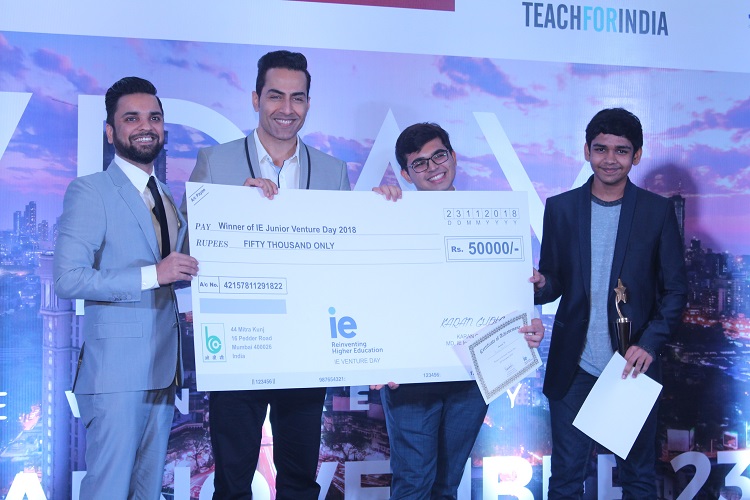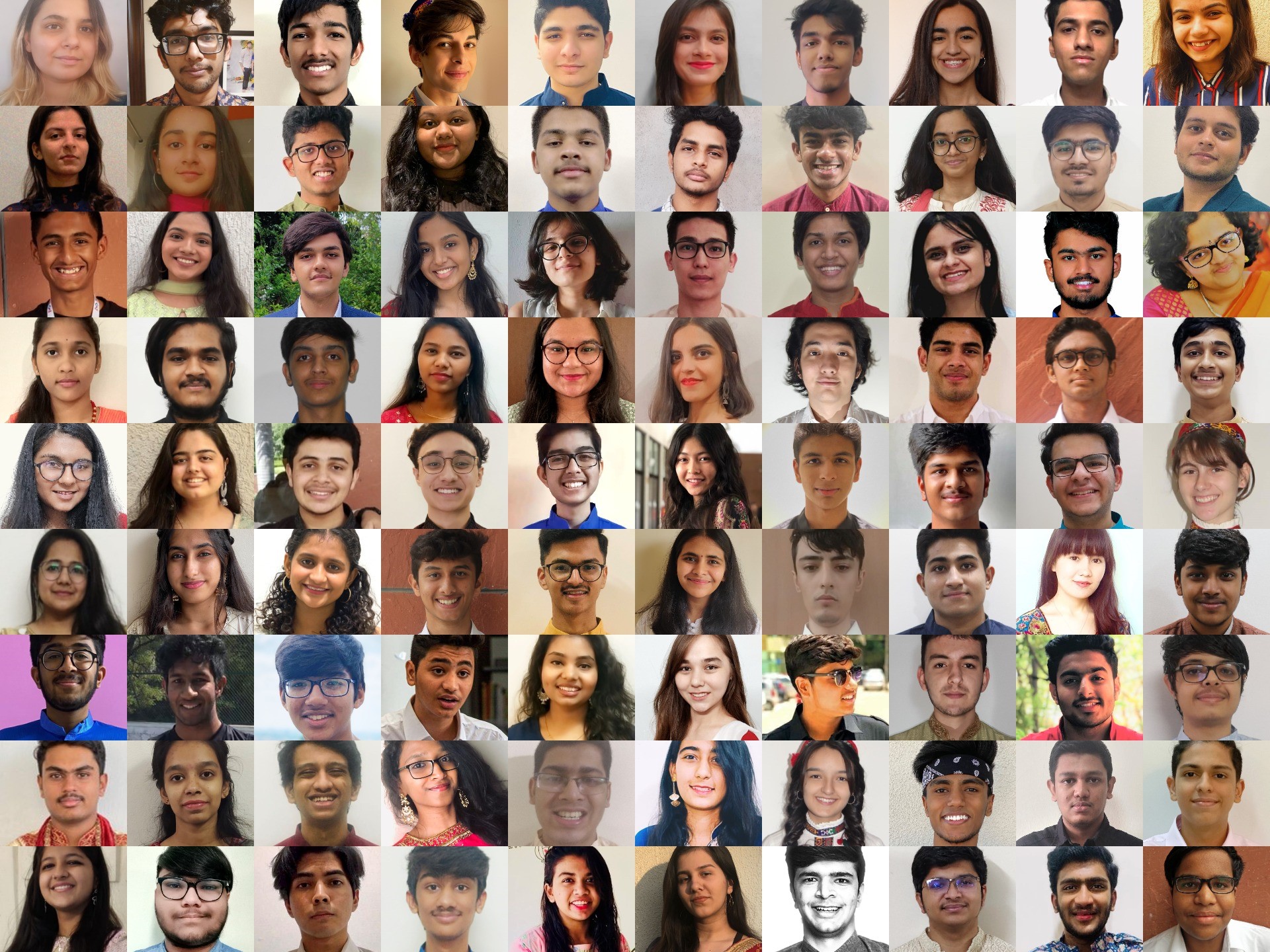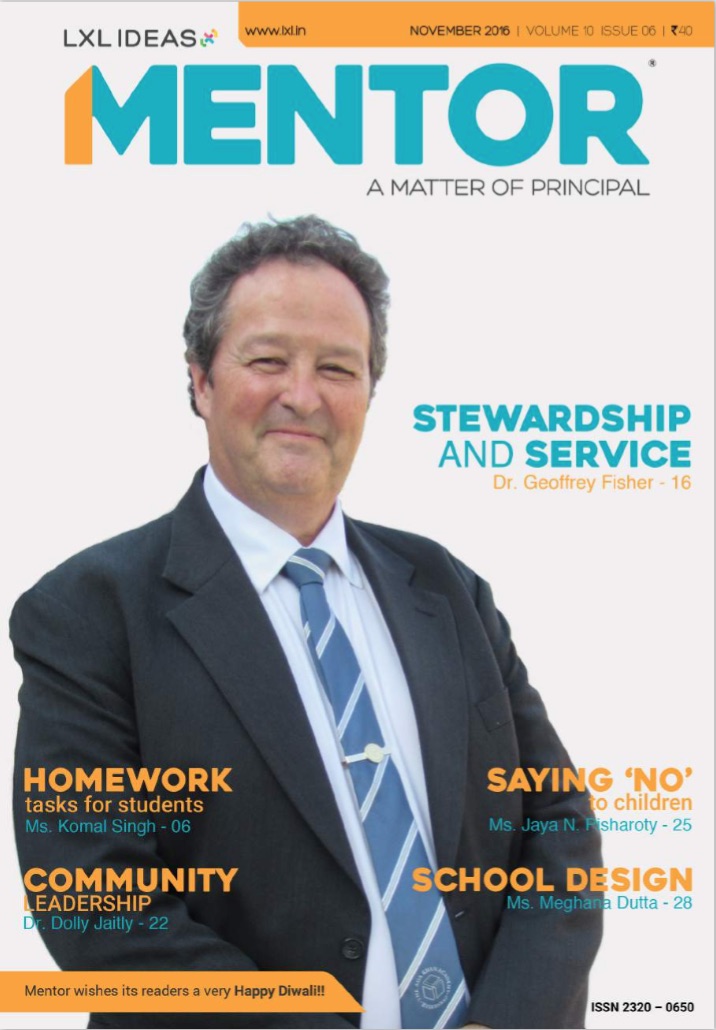Video: AKA Hyderabad Class of 2019 Graduation Ceremony
74 students of the Class of 2019 concluded their International Baccalaureate journey at the Academy with a formal evening ceremony on Saturday 25th May attended by fellow students, alumni, Academy senior management, faculty and staff as well as parents, extended families and invited guests. These students join a growing legacy of global young leaders, driven by the Academy’s unique curriculum and approach to education. The graduation marks a proud milestone of 1,000 such leaders across both the Aga Khan Academy Hyderabad and its sister school, the Aga Khan Academy Mombasa (Kenya).
Aga Khan Academy Hyderabad Scholarship Programme
The Aga Khan Academy Hyderabad is launching a unique scholarship programme to attract India’s brightest young minds to join the Academy.
Up to six merit-based scholarships are on offer for outstanding boys and girls who can demonstrate superior academic ability alongside the potential to excel outside of the classroom in one or more of the following areas:
- Leadership in the service of others
- Innovation in science, technology, engineering or math
- Environmental responsibility
- Performing arts
- Team sports
Scholarships will be awarded to students from a diversity of socioeconomic, cultural, ethnic, linguistic and other backgrounds across India. Based on demonstrated merit and financial need, scholarship awards may cover up to 100% of school fees, including residential fees.
Scholarships are open to new students applying for residential admission in Grade 9 or Grade 11 in July 2023.
The process:
Students should make an application through the normal admissions process (an application fee is payable) and indicate their interest in applying for the Aga Khan Academy Hyderabad Scholarship Programme.
*This scholarship programme is open to new students only; those already enrolled at the Academy are not eligible.
- An initial assessment to determine suitability for the scholarship programme will take place.
- Shortlisted candidates will be invited for a personal interview with the Dean of Admissions. This interview will assess the ability of the student to contribute significantly to the Academy outside of the classroom.
- Final selection includes an interview with the Head of Academy and the Dean of Admissions.
*The decision of the Academy in awarding these scholarships will be final.
Eligibility:
- To apply, students must be Indian Nationals resident in India.
- The scholarships are open to students who are able to demonstrate exceptional academic ability and the potential to benefit from a unique educational programme based on the International Baccalaureate and the Aga Khan Curricular Strands.
- Scholarship are needs-based and will take into account aspects of the financial position of the family at the time of interviews.
- Scholarship awards may not cover all costs, and some scholarships will require the candidate and their family to contribute part of the cost.
To apply or learn more about this programme, please email AKASP.Hyderabad@agakhanacademies.org
Applications will close on 30 April 2023.
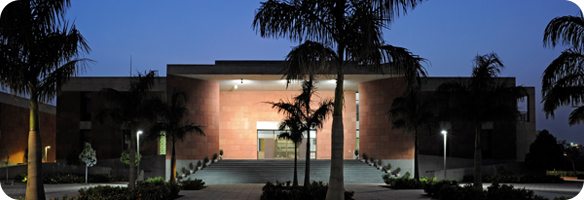
Why Choose the Aga Khan Academy Hyderabad
Admission to the Aga Khan Academy Hyderabad is based on merit. This is broadly defined as exceptional intellectual potential, leadership, a commitment to learning, strong sense of integrity, and the desire to work towards and instigate positive change.
As part of a network of Academies, we have been established to provide exceptional students from all backgrounds with an outstanding education.
We seek students representing a diverse range of economic, cultural, ethnic and religious backgrounds. We look for students who have the ability and motivation to excel academically and who demonstrate leadership in community service and other co-curricular pursuits.
We are more than just residential schools that strive to give their students a sound academic foundation. We emphasise the importance of academic excellence while instilling in students a sense of civic responsibility and the desire, ability and commitment to give back to their communities locally and globally.
"In my view, the most important thing a student can learn in any educational institution is the ability to keep on learning."
Our educational approach measures success not just by academic achievement, but by how students apply what they know to make the world a better place. The overall educational programme is designed to foster students’ curiosity while providing them with the skills and intellectual confidence to engage with what they do not know and find answers and solutions.
Yamini Nibhanupudi (Class of 2014) - Looking at activism through a filmmaking lens
In an honest commentary on the creative process, filmmaker Stanley Kubrick said, “I do not always know what I want, but I do know what I don’t want.” The philosophy behind this method can be extrapolated to the lives of creatives, who wear many hats on their way to becoming who they are. Yamini Nibhanupudi graduated from the Academy in 2014 having focused on maths and sciences in the Diploma Programme. Since then she has roamed the highways of academia, always preferring the scenic route. She studied social sciences, stopped along the way to dabble in research and policy work, and ultimately discovered a passion for filmmaking. “For me,” she says, “deciding to stay in India and continue a life here is the best decision I made.”
Following her high school graduation, Yamini joined the Tata Institute of Social Science, Tuljapur, enrolling in their School of Rural Development. Here she studied political science, gender studies, history and sociology. During this time she worked with the Foundation for Democratic Reforms in Hyderabad, a think tank dealing with policy making. She also interned with Aga Khan Rural Support Program at Khandwa in Madhya Pradesh, working with farmers and marginalized communities. “I always wanted to work with people who spend every single day without any resources at their disposal, to work on the pressing issues that exist in India, issues that most of us never see through our rose tinted glasses.”
“I never lived under the illusion that I would be able to improve the lives of people in India,” she says, adding, “I would like to, but I honestly wouldn’t know where to start.” Writing her final paper as an undergrad, she realized how she could authentically contribute to society. Yamini wrote her dissertation on ‘Gender Roles in the Telugu Film Industry.’ As she delved deep into the paper, she recognized her long held passion for film. She was accepted by TISS Mumbai’s School of Media Studies the same year.
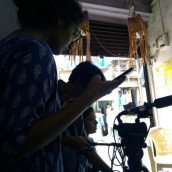 Her choice was validated almost immediately, getting to work at a production house in Mumbai at the end of her first year, and then winning a competition to get a one-minute silent film funded. “A Mute Point” was then screened at the 16mm Film Festival. “It’s been quite a ride since graduating in 2014,” she says looking back, “and I honestly wouldn’t have it any other way.” She is on track to graduate with a Master’s in Media & Cultural Studies in May 2019.
Her choice was validated almost immediately, getting to work at a production house in Mumbai at the end of her first year, and then winning a competition to get a one-minute silent film funded. “A Mute Point” was then screened at the 16mm Film Festival. “It’s been quite a ride since graduating in 2014,” she says looking back, “and I honestly wouldn’t have it any other way.” She is on track to graduate with a Master’s in Media & Cultural Studies in May 2019.
Yamini is a strong proponent of public and government universities. She believes that they are the gateway to a range of education opportunities available in India, and creates an avenue to meet people from across the nation. “I think most people who go to IB schools don’t see India as a viable option to study for their years in university,” she says. “Unfortunately, most of them never truly realise the kind of exposure that you can receive here.” She later adds, “A lot of people might argue that they would gain more exposure and a better understanding about the rest of the world by going abroad. But they have never stepped out of their city in India and a lot of them rarely have friends out of their social class or caste in the country. I've been lucky to learn from wonderful people about the work they've done or that they intend to do with their lives, and India in itself has such wonderful and diverse cultures that I would probably never have ever been exposed to had I studied elsewhere.”
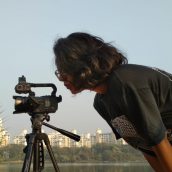 90% of graduates from the Aga Khan Academy Hyderabad have gone on to study abroad, and several students join the IB programme explicitly to have the opportunity to study in the West. Yamini says that an IB education is more than that, and that an education at the Academy was more significant to her than just a stepping stone. “IB teaches you to think critically, and to question everything,” she says. “In a country where rote learning is so persistent, it existed as a breath of fresh air for me.”
90% of graduates from the Aga Khan Academy Hyderabad have gone on to study abroad, and several students join the IB programme explicitly to have the opportunity to study in the West. Yamini says that an IB education is more than that, and that an education at the Academy was more significant to her than just a stepping stone. “IB teaches you to think critically, and to question everything,” she says. “In a country where rote learning is so persistent, it existed as a breath of fresh air for me.”
“The Academy prepared me for a lifelong affair with academia,” she confesses. “I learned to love research to the extent that I have considered going into teaching and pursuing a PhD.” Yamini is quick to add that her experiences at the Academy go beyond just education. “Being part of a community like this, which continues to check up on its alumni, and which still continues to be there for us years after we have graduated, is an immense source of pride.”
Students and professors at TISS take social activism to be an integral part of being an educated member of society and are involved in forcing change on their campuses, their cities and their fields. “I've learnt my place in this country from both a social and political standpoint,” says Yamini. “If I look back at 2018, I can see the fight that so many people have been a part of, whether it is about caste issues, the landmark judgement scrapping section 377, to the horrific [Transgender Persons] bill of 2018 that was passed, marginalising the very community it was meant to protect. I see my peers around me fighting every day and I can do nothing but support and document them.” Using her passion for filmmaking, Yamini hopes to make a responsible, self-aware contribution to these movements. “I would like to be able to tell their stories with them, with their permission, and with their direction. I know for a fact that I can’t, and in fact shouldn’t be their voice, but I can do everything in my power to back their voices.”
 Yamini’s education has been broad and diverse, incorporating the complexity of sciences, the gentility of humanities and the adroitness of cinema. But unlike the Kubrik-ian creative littering the highway with discards, she uses detours to inform her work and her personality. “I never really had any clarity about what I wanted to do,” she says, "but now that I do, I’m pushing towards it with all the energy in me.”
Yamini’s education has been broad and diverse, incorporating the complexity of sciences, the gentility of humanities and the adroitness of cinema. But unlike the Kubrik-ian creative littering the highway with discards, she uses detours to inform her work and her personality. “I never really had any clarity about what I wanted to do,” she says, "but now that I do, I’m pushing towards it with all the energy in me.”
Written by Ajay Sundaram
Aga Khan Academies Newsletter
Click here to read the latest AKA Newsletter
AKA Newsletter
Click here to read the latest newsletter
